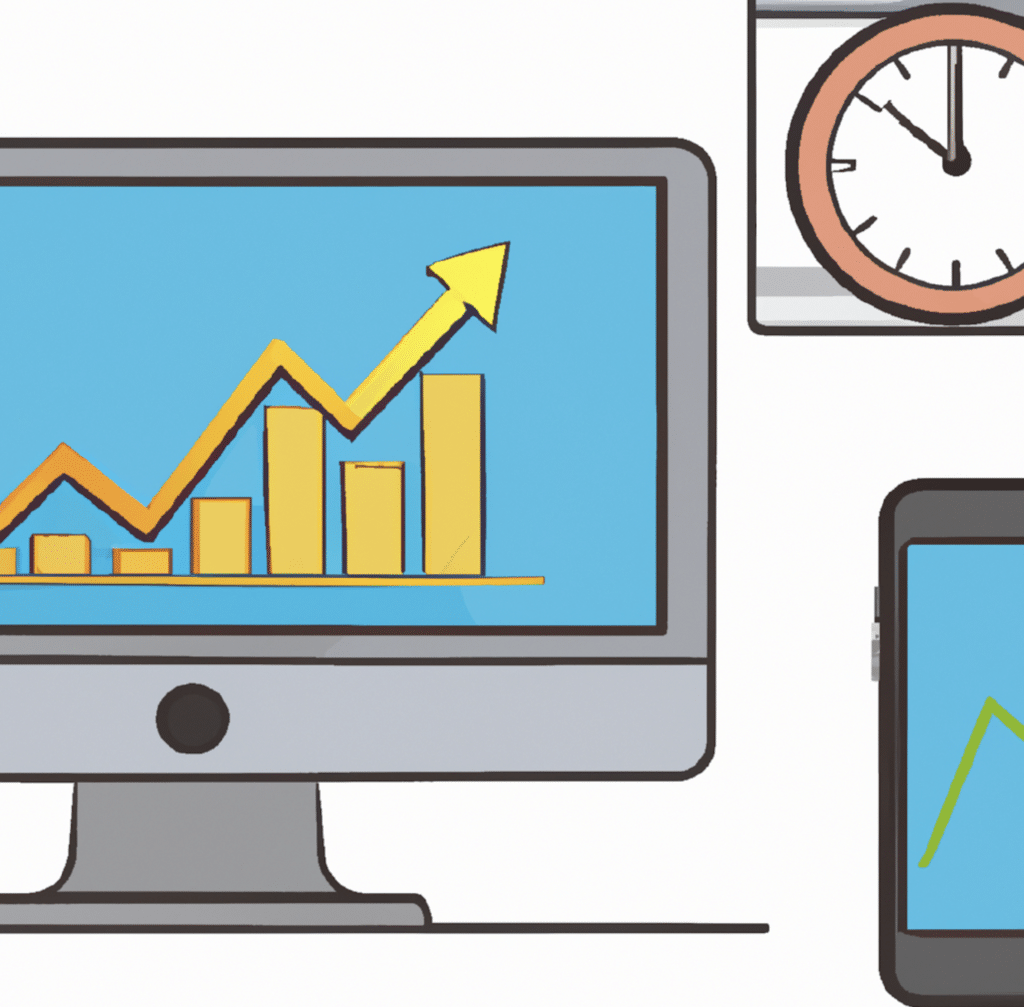Performance and Speed: Comparing Mobile Apps to Trading Platforms
Hi there! Ever wondered about the rapid evolution of our digital companions? From the bulky desktops of long ago to the sleek smartphones in our pockets, the digital landscape has transformed dramatically. In this article, we’ll look into the world of performance and speed, comparing the might of mobile apps to the power of desktop platforms. So, buckle up, and let’s embark on this enlightening journey together!

Why Performance Matters
Imagine this: you’re trying to book a last-minute flight, but the app keeps lagging. Frustrating, right? Performance, in essence, shapes your digital experience.
- User Experience: A snappy app or website feels like a breeze, while a slow one feels like wading through mud. For you to be truly engaged, speed is paramount.
- Business Impact: Did you know? A mere 1-second delay in page load can cause a 7% reduction in conversions. Speed isn’t just about convenience; it’s about dollars and cents.
Mobile Apps: The Good and The Bad
Ah, the world of mobile apps! Always at your fingertips, ready to serve. But, like all things, they come with their highs and lows.
| Pros | Cons |
|---|---|
| Portability and accessibility make them a traveler’s best friend. | Limited by device hardware, not all apps run smoothly on all devices. |
| Designed for touch, they offer intuitive user experiences. | Performance can vary across devices, leading to inconsistent experiences. |
| Real-time updates and notifications keep you in the loop. | Beware of data consumption and battery drain! |
Read about the best mobile apps for UK traders here.
Desktop Platforms: The Powerhouses
Desktops, the old guards of the digital realm, still hold their ground firmly. They’ve been with us through thick and thin, but how do they stack up in the modern age?
| Pros | Cons |
|---|---|
| Unmatched performance and multitasking. Run multiple apps without breaking a sweat. | They’re not coming with you to the coffee shop. Portability isn’t their strength. |
| A large screen allows you to dive deep into tasks, perfect for designers and editors. | Software updates and occasional maintenance can be a drag. |
| Stable internet connections mean no more unexpected disconnections. | Remember the dread of slow boot times? Yep, they’re still a thing. |
Comparative Analysis on Performance
When we place mobile apps and desktop platforms side by side, some fascinating contrasts emerge. Let’s break it down with a comparative table to give you a clearer picture:
| Criteria | Mobile Apps | Desktop Platforms |
|---|---|---|
| Speed | Often optimized for quick interactions and bursts of activity. | Designed for sustained use and can handle resource-intensive tasks with ease. |
| Accessibility | Anytime, anywhere – as long as you have your device. | Restricted to where the machine is set up, but offers a broader range of software options. |
| User Interface | Simplified for smaller screens and touch navigation. | More detailed, suitable for mouse and keyboard navigation. |
| Customization | Limited by app store guidelines and device capabilities. | Vast customization options, from software tweaks to hardware upgrades. |
| Security | Regular updates for OS and apps, but potential risks with third-party app stores. | Robust security measures, but susceptible to malware and requires regular updates. |
In real-world scenarios, you might find mobile apps perfect for quick tasks like checking emails, social media, or online shopping. On the other hand, when you need to edit a video, play a high-end game, or work on detailed graphics, desktop platforms are your go-to.
Tips for Optimizing Performance
Whether you’re a developer aiming to create the next big app or a user looking to get the most out of your device, optimizing performance is key. Here’s what you need to know:
- For Developers:
- Mobile Apps: Focus on lightweight designs, minimize background processes, and test across different devices.
- Desktop Platforms: Ensure compatibility with different OS versions, optimize for faster boot times, and regularly update for security patches.
- For Users:
- Mobile Apps: Regularly clear cache, update apps, and avoid downloading from untrusted sources.
- Desktop Platforms: Schedule regular system clean-ups, update software, and invest in good antivirus software.
Conclusion
The debate between mobile apps and desktop platforms isn’t about which is superior. It’s about understanding their strengths and weaknesses and choosing the right tool for the job, learn more here. As technology continues to evolve, the lines between mobile and desktop might blur even further. But for now, it’s essential for you to be informed and make choices that best suit your needs.
Now that you’re armed with this knowledge, we’d love to hear from you! Share your experiences, thoughts, and preferences in the comments below. Are you team mobile or team desktop? Let the discussions begin!
Thank you for using FxExplained on this enlightening journey through the realms of mobile apps and desktop platforms. Remember, in the world of technology, staying informed is the key to staying ahead.